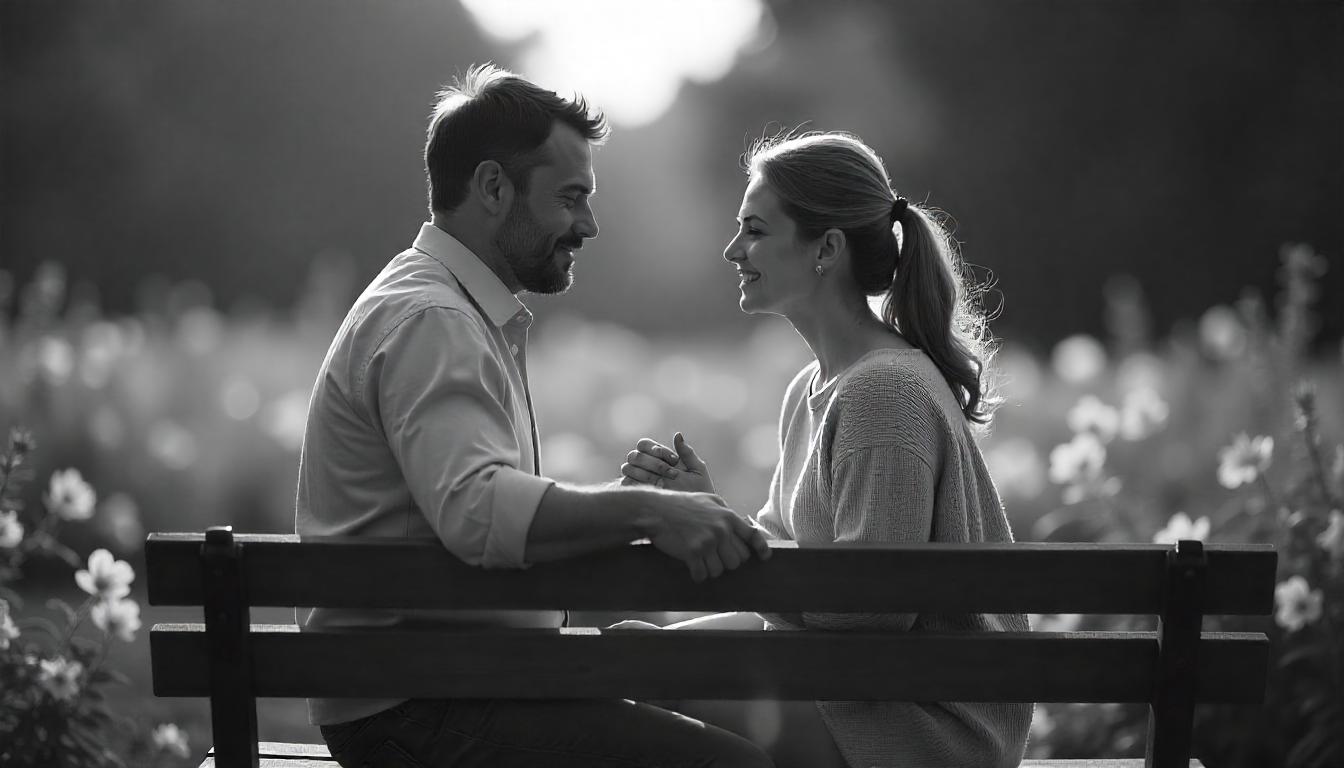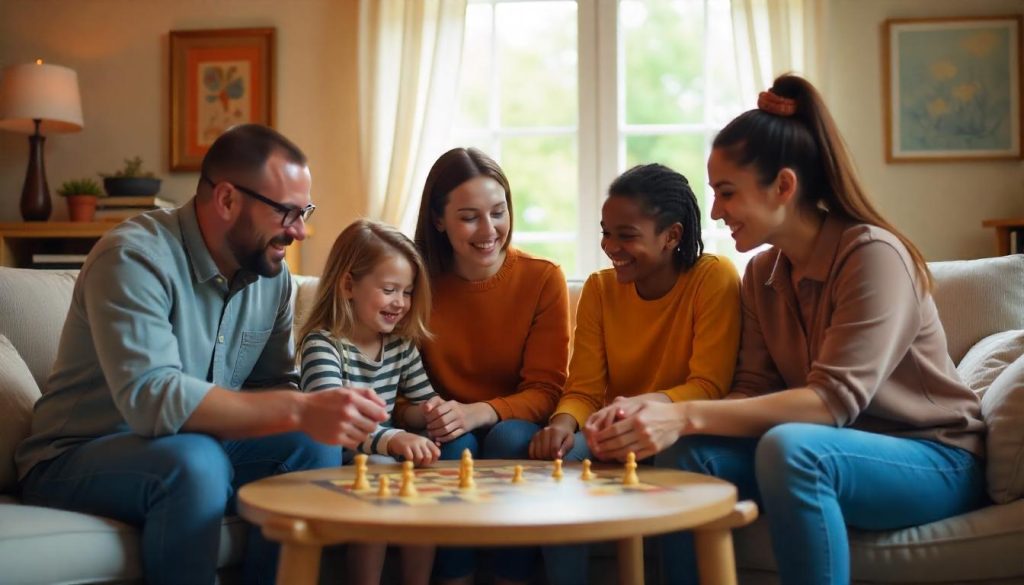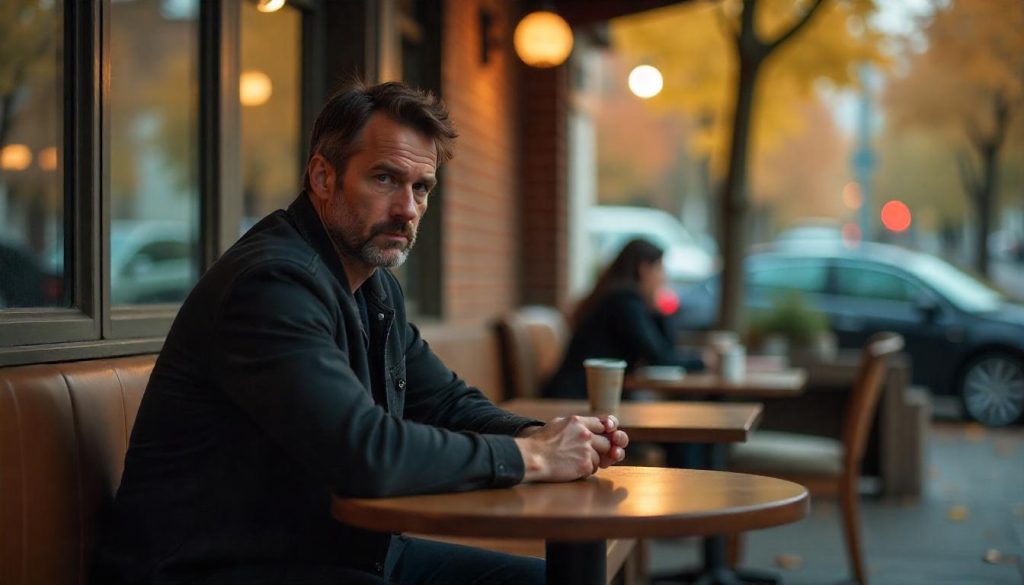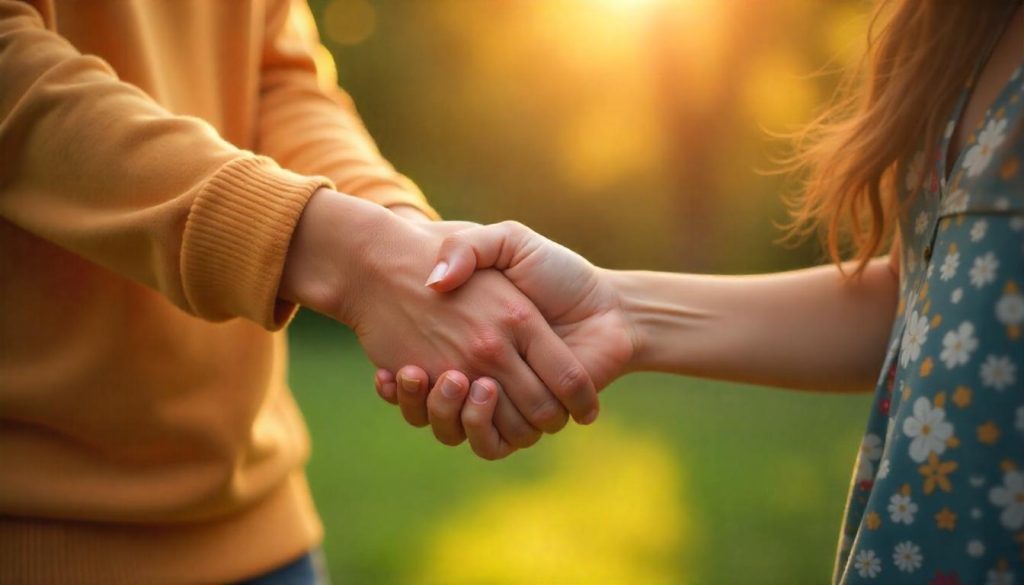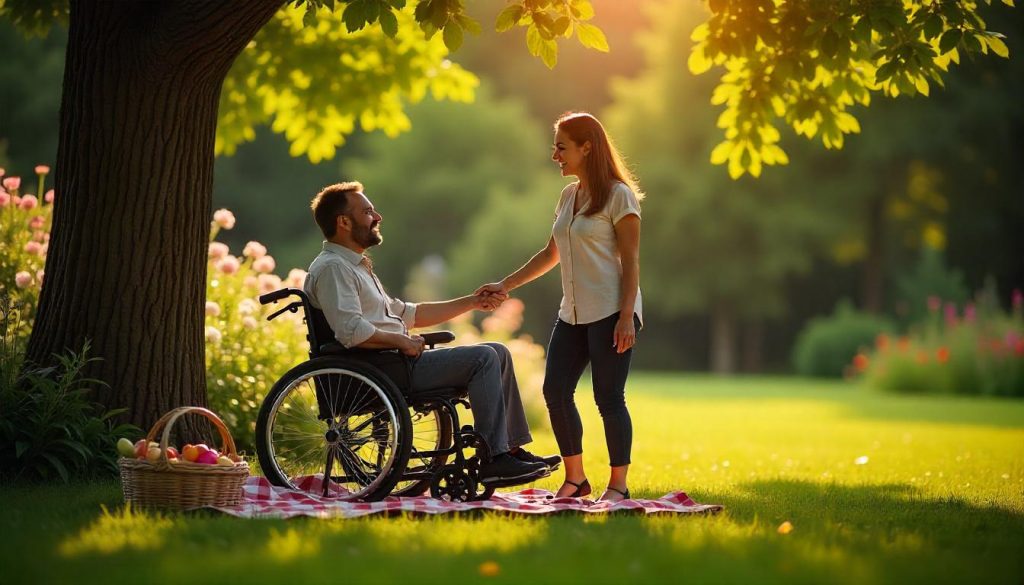A viagem de dating after loss healing is one of the most profound and courageous paths a person can embark upon. When you have experienced the death of a beloved partner, the thought of opening your heart again can feel overwhelming, perhaps even disloyal. Yet, healing from grief does not mean forgetting the love you lost; rather, it involves integrating that love into who you are, allowing your heart to expand to encompass new experiences and connections. This process is deeply personal, often non-linear, and filled with a complex array of emotions. However, finding new love after bereavement is not only possible but can also be a beautiful testament to resilience, the enduring human need for connection, and the boundless capacity of the heart.
Many people grappling with grief find themselves caught between immense sorrow and a burgeoning, sometimes guilt-ridden, desire for companionship. Societal expectations about how long one “should” grieve can add to this pressure, whether from well-meaning friends urging you to “move on” or internal voices questioning your readiness. This article aims to provide a compassionate guide to navigating this unique emotional landscape, offering insights into the grief journey, identifying signs of readiness, and practical advice for gently stepping into the world of new relationships. It is a journey of honoring the past while bravely embracing the future.
The Grief Journey and Its Impact on Dating
Grief profoundly reshapes a person, affecting their emotional, physical, and even cognitive states. Understanding these impacts is crucial before considering dating.
Understanding Grief’s Non-Linearity
Grief is not a linear process with clear stages to “get through.” Instead, it often manifests in waves, with periods of intense sadness intermingled with moments of peace, or even joy. Triggers can bring back powerful emotions unexpectedly, even years after a loss. When considering dating after loss healing, accept that grief will likely remain a part of your life in some form, and that is perfectly normal. It does not mean you are not healing; it means you are human.
Grief’s Physical and Emotional Toll
The process of grieving is physically and emotionally exhausting. It can lead to fatigue, brain fog, difficulty concentrating, changes in appetite or sleep patterns, and heightened emotional sensitivity. These impacts can make dating, which requires energy and emotional openness, feel incredibly daunting. Recognizing these challenges and giving yourself grace is more important than pushing yourself too hard. You might find yourself more vulnerable than usual.
The Shadow of Comparison
A common hurdle in dating after loss healing involves the inevitable comparison of a new partner to the one who died. Your past relationship holds a sacred place, and it is natural to measure new experiences against it. This can make it difficult to appreciate a new person for who they are, rather than seeing them as a replacement or finding them lacking. Actively working to recognize and manage this tendency is essential for any new relationship to flourish.
Guilt and Loyalty Binds
Many individuals experience profound guilt when considering or beginning to date after a loss. They may feel as though they are “betraying” their deceased partner or diminishing the love they shared. This loyalty bind can be incredibly powerful, even if the deceased partner would have wanted them to find happiness. Similarly, concerns about how children, family, or friends might react can fuel these feelings of guilt. Releasing this guilt is a core part of truly opening up.
When Is the “Right Time” to Date?
Perhaps the most frequently asked question is, “When is it okay to start dating?” The answer is invariably personal, with no universal timeline.
There Is No Universal Answer
There is no prescribed amount of time one “should” wait before dating again. Some people feel ready within months, while others need years, and some choose never to date again. What matters most is your internal readiness, not external expectations or societal norms. Your journey is uniquely yours, and only you can truly determine what feels right.
Signs You Might Be Ready
While there’s no checklist, certain indicators suggest you might be ready to explore new connections. These include a genuine desire for companionship, not just a need to fill a void; an ability to function relatively well in your daily life; moments of genuine joy and engagement in activities; and a willingness to envision a future that includes new experiences. You might also find yourself less consumed by acute grief and more able to focus on others’ needs.
Signs You Might Need More Time
Conversely, certain signs suggest you may benefit from more time for individual healing. These include overwhelming, persistent grief that impacts daily functioning; a pervasive feeling of emptiness that you hope a new relationship will “fix”; an inability to focus on a date’s needs or interests; or dating primarily to alleviate loneliness rather than for genuine connection. If you’re constantly seeking a replacement for your lost love, it may be too soon.
The Importance of Self-Compassion
Regardless of your timeline, practice self-compassion. Do not pressure yourself into dating if you are not ready, and do not judge yourself if you find yourself open to it sooner than you or others expected. Healing is a process, and every step, no matter how small, is a valid part of your journey.
Preparing for Dating After Loss Healing
Stepping back into the dating world requires intentional preparation, both emotional and practical.
Prioritize Your Healing
Continue to prioritize your emotional healing. This might involve therapy, joining a grief support group, journaling, or engaging in self-care practices that nurture your well-being. A strong foundation of self-care makes you more resilient and better equipped to handle the emotional demands of dating. You are more vulnerable than usual, so self-care is vital.
Define Your Needs and Boundaries
Before you start dating, take time to reflect on what you truly want and need in a new relationship. Your priorities may have shifted significantly since your previous partnership. What are your non-negotiables? What are you open to? Establishing clear boundaries—regarding physical intimacy, emotional disclosure, and time commitments—will help you feel safer and more in control as you navigate new connections.
Honoring Your Past Love
Finding new love does not require you to diminish or forget your past love. Find ways to honor the memory of your deceased partner that feel right to you. This could involve keeping photos, visiting meaningful places, or sharing stories. Integrating these memories into your life, rather than compartmentalizing them, allows you to move forward authentically. A new partner can learn about and respect this history without feeling like a competitor.
Communicating with Children (If Applicable)
If you have children, their feelings and reactions are a crucial consideration. Discuss your intentions with them in an age-appropriate manner, reassuring them of your continued love and commitment. Involve them in the process at a pace that is comfortable for them, without putting pressure on them to accept a new partner immediately. Their adjustment also takes time and understanding.
Managing Expectations for New Relationships
Recognize that any new relationship will be different from your previous one. It will not be a replica, nor should it be. Embrace the uniqueness of each individual connection. This mindset helps you avoid the trap of comparison and allows you to appreciate a new person for their own distinct qualities and contributions to your life. The experience of dating after loss healing is about creating new love, not replicating old.
Navigating the Dating Landscape
The practicalities of dating after a long-term relationship or marriage, especially after loss, can feel daunting.
Where to Meet People
Consider various avenues for meeting new people. Online dating apps offer a wide pool, but require discernment. Reconnecting with social circles, pursuing new hobbies, joining groups aligned with your interests, or meeting people through friends can also lead to organic connections. Choose environments where you feel comfortable and safe.
The “Disclosure” Dilemma
One of the trickiest aspects is deciding when and how to share your story of loss with a new date. While honesty is important, you don’t need to overshare on the first date. A general mention (“I lost my partner some time ago”) is often sufficient initially. As trust develops, you can share more details. Observe their reaction: do they show empathy, curiosity, or discomfort? Their response reveals much about their character and capacity for understanding. Be prepared for varied reactions.
Coping with Triggers and Emotional Swings
Even when you feel ready, dating can trigger unexpected waves of grief or sadness. A particular song, a shared activity, or a conversation topic might bring back powerful memories. Acknowledge these feelings without judgment. Communicate them to your date if you feel safe and comfortable doing so, explaining that it’s part of your process. This transparency builds intimacy.
Dealing with Others’ Reactions
Friends and family, even with good intentions, might offer unsolicited opinions or judgments about your dating life. Develop boundaries around these conversations. Remind yourself that this is your journey, and their reactions often stem from their own discomfort with grief or their loyalty to your past relationship. Surround yourself with supportive people who champion your healing and happiness.
Evitando Ativamente as Armadilhas da Comparação
Desafie conscientemente qualquer desejo de comparar um novo encontro com seu amor perdido. Em vez de dizer: "Meu falecido parceiro nunca fez isso", tente apreciar a nova pessoa por seus pontos fortes únicos e as diferentes qualidades que ela traz. Cada pessoa é um indivíduo, e a beleza de um novo relacionamento reside em sua própria identidade distinta. Isso é vital para o sucesso dating after loss healing.
Construindo uma Nova Conexão: Esperança e Desafios
À medida que uma nova conexão começa a se formar, você enfrentará novas oportunidades e desafios contínuos.
Abraçando a Vulnerabilidade
Abrir seu coração novamente após uma perda requer imensa vulnerabilidade. Significa arriscar dor, decepção e a estranheza de um novo tipo de amor. No entanto, abraçar essa vulnerabilidade é também como você permite que a alegria e a conexão profunda voltem para sua vida. Dê pequenos passos, compartilhando à medida que se sentir seguro e pronto.
Permitindo Diferentes Tipos de Amor
Nenhum novo amor replicará o amor que você teve antes. Será diferente, mas pode ser igualmente profundo e gratificante. Liberte a expectativa de que deve ser igual. Em vez disso, permita-se descobrir e valorizar as qualidades únicas desta nova conexão. Sua capacidade de amar não é finita; ela se expande.
Paciência consigo mesmo e com o seu parceiro
Tanto você quanto seu novo parceiro precisarão de paciência. Você continuará a experimentar momentos de luto, e seu parceiro precisará entender isso. Da mesma forma, seu novo parceiro pode ter suas próprias inseguranças ou preocupações sobre seu relacionamento passado. Comunicação aberta, empatia e paciência de ambos os lados são essenciais para lidar com essas complexidades.
Abordando ativamente questões de culpa e lealdade
A culpa e a lealdade podem ressurgir mesmo em um novo relacionamento amoroso. Supere esses sentimentos, lembrando a si mesmo de que seu parceiro falecido provavelmente gostaria que você fosse feliz. Discuta esses sentimentos com seu novo parceiro, garantindo que a presença deles não apaga o passado, mas adiciona um novo capítulo precioso à sua vida. Muitas pessoas encontram conforto em saber que o amor se expande, não substitui.
Criando Novas Memórias Enquanto Respeitamos as Antigas
Esforce-se por um equilíbrio entre honrar o seu passado e construir novas memórias. Apresente o seu novo parceiro a aspetos da sua vida que foram importantes para o seu relacionamento anterior, se se sentir confortável, mas também procure ativamente novas experiências juntos. Esta integração demonstra respeito pela sua história e, simultaneamente, forja um vínculo único com o seu novo amor.
A Recompensa Profunda de Se Abrir ao Amor
Apesar dos desafios, a decisão de procurar o amor após uma perda pode trazer recompensas profundas.
- Alegria e Companheirismo Renovados: Um novo parceiro pode trazer risadas, experiências compartilhadas, apoio emocional e um renovado senso de propósito e alegria.
- Demonstrando Resiliência: Abrir seu coração novamente é um ato poderoso de resiliência, demonstrando sua força e capacidade de navegar por mudanças profundas e emergir com esperança.
- Expandindo Sua Capacidade de Amar: Descobrir que você pode amar novamente, de maneira diferente, mas profundamente, expande sua compreensão sobre a natureza ilimitada do amor. Isso prova que o coração, embora partido, pode se curar e crescer.
Conclusão
O caminho de dating after loss healing é um testemunho da notável capacidade do espírito humano para resiliência, crescimento e amor. É uma jornada corajosa que reconhece o impacto duradouro do luto enquanto, simultaneamente, abraça a possibilidade de novos começos. Não existe uma maneira certa ou errada de navegar por esta transição, apenas a sua maneira. Ao priorizar a sua cura, comunicar-se abertamente, gerenciar expectativas e confiar na sua intuição, você pode gentilmente abrir o seu coração para novas conexões. Encontrar o amor novamente não significa esquecer o amor que foi; em vez disso, significa permitir que seu coração se expanda, criando um belo mosaico de amores passados e presentes que enriquecem sua vida de maneiras profundas e inesperadas.

